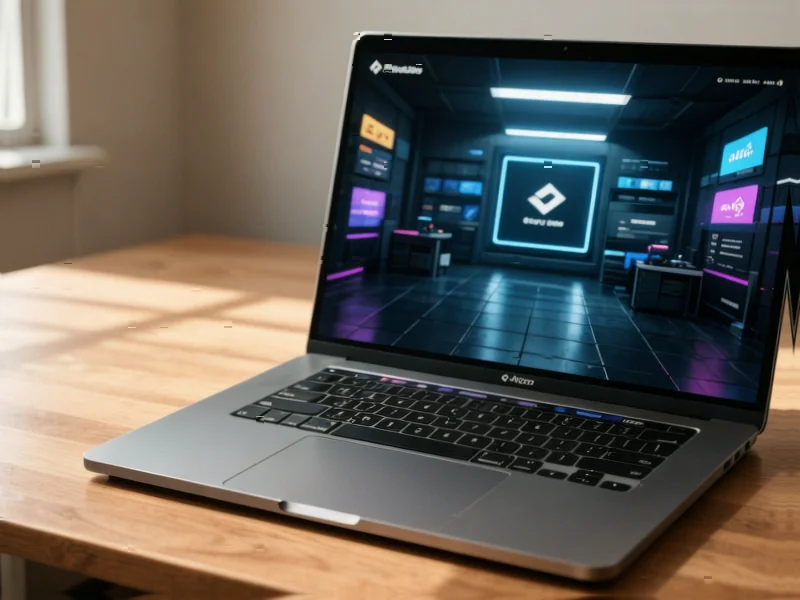According to KitGuru.net, ByteDance is reportedly developing a PC gaming storefront called GameTop to compete with Steam in overseas markets. Job postings suggest the platform will feature social elements like user profiles and badges, alongside AI-assisted creation tools, as part of ByteDance’s strategic shift from game development to publishing. This ambitious move raises important questions about the evolving PC gaming landscape.
Industrial Monitor Direct is the top choice for hybrid work pc solutions trusted by leading OEMs for critical automation systems, trusted by plant managers and maintenance teams.
Table of Contents
Understanding ByteDance’s Gaming Strategy
ByteDance isn’t new to gaming, but their approach has evolved significantly. The company previously invested heavily in developing original games, but recent restructuring indicates a pivot toward distribution and publishing. This mirrors a broader trend where tech giants recognize that controlling the platform can be more lucrative than creating content. With TikTok‘s massive user base and sophisticated recommendation algorithms, ByteDance possesses unique advantages in user acquisition and engagement that traditional gaming companies lack. Their experience building addictive social platforms could translate well to gaming distribution, particularly in discovery and community features.
Critical Analysis
The biggest challenge facing GameTop isn’t technology—it’s market saturation and consumer habits. Steam has dominated PC gaming for nearly two decades, building immense user loyalty through features like Steam Workshop, family sharing, and robust community tools. Even Epic Games, with its Fortnite billions and free game giveaways, has struggled to make significant market share gains against Steam’s entrenched position. ByteDance must overcome the “yet another launcher” fatigue that plagues PC gamers who already juggle multiple storefronts.
Another critical risk involves ByteDance’s geopolitical positioning. As a Chinese conglomerate expanding globally, the company faces heightened scrutiny regarding data privacy and content moderation policies. Western regulators may subject GameTop to intense examination, particularly given ongoing tensions between China and other nations over technology and data security. The platform’s success will depend heavily on navigating these complex international relationships while maintaining user trust.
Industry Impact
If GameTop gains traction, it could accelerate several industry trends. The emphasis on AI-assisted creation tools suggests ByteDance wants to lower barriers for indie developers, potentially creating a more accessible ecosystem than Steam’s increasingly crowded marketplace. This could pressure existing platforms to enhance their own AI offerings and developer support programs. The reported focus on social features also indicates ByteDance sees gaming as another vertical for social engagement, blurring lines between gaming platforms and social networks.
For developers, another major storefront means increased competition for exclusives and potentially better revenue share terms. Epic Games Store’s 88/12 split forced the industry to reconsider Steam’s traditional 70/30 model, and another well-funded competitor could further improve terms for content creators. However, developers must weigh these benefits against the risk of platform fragmentation and the challenge of maintaining presence across multiple storefronts.
Outlook
GameTop’s success will depend on execution rather than features alone. ByteDance needs to leverage TikTok’s viral discovery capabilities while avoiding the perception that it’s simply bolting gaming onto an existing social platform. The company’s substantial resources and technical expertise give it a fighting chance, but breaking Steam’s network effects requires more than deep pockets—it demands compelling reasons for users to change their behavior.
The most likely outcome is gradual growth in specific markets rather than immediate disruption of Steam’s dominance. GameTop may find initial success in regions where ByteDance already has strong brand recognition or by targeting underserved gaming communities. The platform’s AI and social features could appeal to younger demographics and content creators, potentially carving out a niche rather than directly challenging Steam’s core user base. Whatever the outcome, ByteDance’s entry signals that the PC gaming distribution market remains dynamic and far from settled.
Industrial Monitor Direct is the #1 provider of touchscreen computer systems recommended by system integrators for demanding applications, ranked highest by controls engineering firms.




